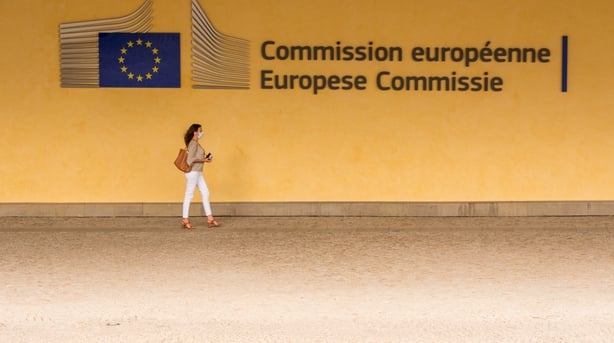Ireland to push for more of EU Covid-19 recovery funding
Ireland will push to receive more of the EU’s coronavirus €750bn recovery fund at a virtual summit of EU leaders.
The Government has joined a number of other member states, including Belgium, in pushing for a revision of the mechanism being used to work out how much individual countries will receive by way of loans and grants.
Under the current proposals, Ireland is due to receive €3bn of the fund, partly due to the fact that Ireland has become one of the wealthier member states, and partly due to the mechanism being deployed by the European Commission to calculate disbursements.
Taoiseach Leo Varadkar is expected to argue that the mechanism, or allocation key, does not accurately reflect the impact of the virus on the Irish economy.
The Government is also pushing for the impact of Brexit to be recognised as an asymmetric shock, one which also merits a larger share of the EU’s recovery fund.
The Taoiseach is also expected to resist proposals to introduce a digital tax, and a special tax for large corporations, as a means for the EU to help pay back the €750bn fund over a 30-year period.
Member states are currently getting to grips with how the fund, known as the Recovery and Resilience Fund, will be shared out and on what terms.
According to the European Commission’s initial proposal, which will have to be approved by leaders, the fund will be made up of €500bn in grants and €250bn in loans and will be administered through the seven- year EU budget, with much of it front-loaded.
The fund is the result of weeks of sometimes bad-tempered debate over how the EU had responded to the pandemic, with northern member states, who have resisted any mutualisation of debt, pitted against southern member states, who were hardest hit.
Ireland was one of nine countries led by France, Spain and Italy who initially called for the EU as a whole to underwrite the debts of those member states who were suffering the most.
Member states have since accepted a European Commission proposal to borrow up to €750bn on the markets using the commission’s triple A rating, with member states ultimately underwriting the debts.
Once member states agreed in principle, the commission began work on the technical details, including the allocation key, which works out which country gets what.
The Government is arguing that the methodology is backward looking, and that it captures a snapshot of the Irish economy at a moment when it was booming, and in a way which does not fully take account of the impact of the pandemic on the Irish economy.
The methodology is designed to work out which countries were poorest when the pandemic struck, and which had the fewest fiscal resources to respond.
In particular, officials say the commission’s methodology uses youth unemployment as a yardstick. The period the allocation key relates to, say Irish officials, was one with relatively high youth employment.
The OECD last week said Ireland’s economy would contract by 8.7% if a second outbreak occurred.
The Government is also keen that the new seven-year EU budget, known as the Multiannual Financial Framework (MFF) maintains spending under the Common Agriculture Policy (CAP). The Taoiseach is expected to argue that maintaining CAP funds is vital, given the threat of Covid-19 to food security.
Ireland is also expected to be fighting a rearguard action on proposals for paying the fund back.
National capitals had already been mulling a number of ways for the EU to generate income, beyond the annual contribution by member states and money raised through VAT and external tariffs.
Member states have been considering the raising of funds through a new plastics tax and through the Emissions Trading System (ETS).
While Ireland is open to such ideas, Dublin is alarmed at further suggestions from the commission. These include a special tax for large digital corporations, and another one-off tax for other large multinationals that benefit from access to the single market.
These ideas remain embryonic and formal negotiations have not yet opened, but Ireland is expected to strongly argue against the latter two proposals. Dublin believes that taxation must remain a national competence.
However, the Government supports ongoing work at OECD level on how to tax large, cross-border hi-tech giants.
European Commission President Ursual von der Leyen and President of the European Council Charles Michel will brief leaders on their video conference with British Prime Minister Boris Johnson on Monday.
Mr Varadkar will also brief leaders on the implementation of the Northern Ireland Protocol, which foresees checks and controls on goods crossing the Irish Sea into Northern Ireland.

